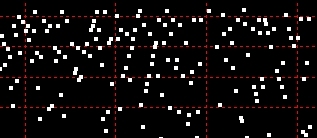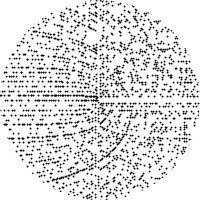
home
| Lists of Composites and Composite Generators | ||
| with Prime Factors | ||
|
|
|
4 = 2 * 2 |
These are comma-delimited text files containing the composite number and its prime factors. First 100 1 - 133 (2KB) First 1,000 1 - 1,197 (20KB) First 10,000 1 - 11,374 (217KB) First 100,000 1 - 110,487 (2.5MB) First 1,000,000 1 - 1,084,605 (6.5MB - zip download only)
Generate lists of composites and their prime factors up to 10^15 (1 quadrillion). Download Prime Factor Generator (13KB)
Generate distinct prime factors and the number of distinct factors. For example, the complete prime factorization of 1000000 is:
The distinct prime factors are 2 and 5, and the number of distinct factors is 2. The number of distinct prime factors is the subject of the Erdős–Kac theorem. They are denoted ω(n). So ω(1000000) = 2. New and Improved Version Additions by Klaus Q. Fischer This new version has several improvements. The most notable change is that it shows the exponent for each prime factor. So, for example, the distinct factors of 500 are now represented thus:
This can be read as "500 has 2 distinct factors: 2 (squared) and 5 (cubed)". (The full notation would be 2 * 2 * 5 * 5 * 5.) Download Distinct Prime Factor Generator (20KB) Download original version (14KB) Output composites and their prime factors in a selected range to text files.
What you get? PFactors.exe DFactors2.exe (new version) DFactors.exe (original version) *If you accept the default of 100,000, that means 100,000 values (and lines) will be written to each file.
|
|
© 2012 Michael M. Ross
Secrets of the Spiral


